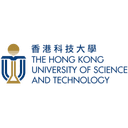This course is part of Principle of Semiconductor Devices.
Dive into the world of semiconductor devices with this comprehensive course from HKUSTx. Starting with fundamental semiconductor concepts, you'll explore doping and PN junction formation. The course covers carrier currents under different bias conditions, explaining operational principles through drift and diffusion physics. You'll learn about practical applications including photodiodes, solar cells, LEDs, and metal-semiconductor contacts. The course culminates with an in-depth study of bipolar junction transistors (BJT), covering various operation modes and circuit models. Through engaging animations and practical examples, you'll gain both theoretical understanding and practical design skills.
4.7
(10 ratings)
17,295 already enrolled
Instructors:
English
English
What you'll learn
Describe carrier motion in semiconductor materials
Illustrate operational principles of common electronic devices
Identify key parameters for design specifications
Construct circuit models for electronic devices
Communicate effectively using semiconductor terminology
Analyze PN junction characteristics and behavior
Skills you'll gain
This course includes:
PreRecorded video
Graded assignments, Exams
Access on Mobile, Tablet, Desktop
Limited Access access
Shareable certificate
Closed caption
Get a Completion Certificate
Share your certificate with prospective employers and your professional network on LinkedIn.
Provided by

Top companies offer this course to their employees
Top companies provide this course to enhance their employees' skills, ensuring they excel in handling complex projects and drive organizational success.





There are 8 modules in this course
This comprehensive course covers fundamental semiconductor concepts and their practical applications. Students learn about energy band diagrams, carrier concentration, doping effects, and PN junction formation. The curriculum includes detailed study of various semiconductor devices including diodes, photodiodes, solar cells, LEDs, and bipolar junction transistors. Each topic combines theoretical understanding with practical applications, supported by engaging animations for better visualization. The course emphasizes both operational principles and design considerations, preparing students for real-world electronic device applications.
Intrinsic semiconductor materials
Module 1
Doping and PN junction formation
Module 2
Current-voltage characteristics of PN junction diodes
Module 3
Real PN junction characteristics, its model and design
Module 4
PN junction optical properties and metal-semiconductor contacts
Module 5
Basic operation of Bipolar Junction Transistor
Module 6
Real Bipolar Junction Transistor structures, switching characteristics and model
Module 7
Final Exam
Module 8
Fee Structure
Individual course purchase is not available - to enroll in this course with a certificate, you need to purchase the complete Professional Certificate Course. For enrollment and detailed fee structure, visit the following: Principle of Semiconductor Devices
Instructor

4 Courses
A Distinguished Pioneer in Semiconductor Technology and Education
Mansun Chan serves as the Alex Wong Siu Wah Gigi Wong Fook Chi Professor of Engineering and Chair Professor at the Department of Electronic and Computer Engineering at HKUST, where he has established himself as a leading expert in semiconductor technology and education since 1996. After completing his BS degrees in Electrical Engineering and Computer Sciences from UC San Diego and his PhD from UC Berkeley, he has made significant contributions to semiconductor device modeling, including being a major contributor to the unified BSIM model for SPICE, which became the first industrial standard MOSFET model. His research spans multiple areas including 2-D devices and circuits, nano-CMOS technology, quantum computing, and AI technologies and systems. His excellence in education has been recognized through numerous awards, including being named an IEEE Distinguished Lecturer in 2003 and becoming the youngest-ever recipient of the IEEE Electron Devices Society Education Award in 2017. Beyond his academic work, he has produced groundbreaking educational content, including the first complete animation-based online class on semiconductor devices that attracted over 10,000 students worldwide in just one year. His research achievements include more than 14 U.S. patents, over 600 journal and conference papers, and recognition as an IEEE Fellow in 2013 for his contributions to CMOS device modeling. Chan currently leads HKUST's Emerging Device and System Group while maintaining diverse interests beyond academia, including boardgame design, painting, competitive ballroom dancing, trailrunning, scuba diving, and paragliding.
Testimonials
Testimonials and success stories are a testament to the quality of this program and its impact on your career and learning journey. Be the first to help others make an informed decision by sharing your review of the course.
Frequently asked questions
Below are some of the most commonly asked questions about this course. We aim to provide clear and concise answers to help you better understand the course content, structure, and any other relevant information. If you have any additional questions or if your question is not listed here, please don't hesitate to reach out to our support team for further assistance.


